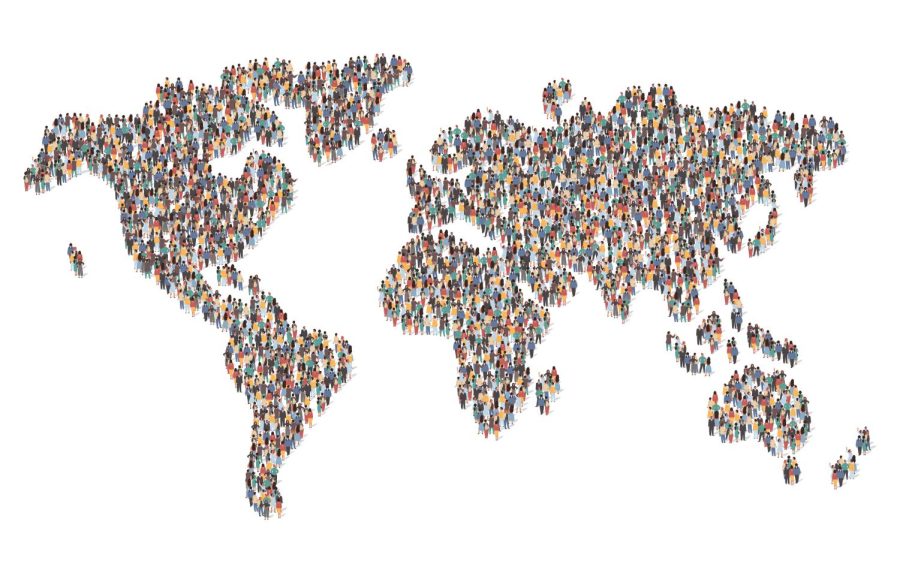The world population reaches 8 billion, expected to rise to 9 billion by 2037
Getty Images
On Nov. 15 the world population reached eight billion, a milestone that should be cautiously celebrated.
December 20, 2022
The United Nations (UN) declared that on Nov. 15, our planet hit a population of eight billion people. This staggering number has taken humanity 12 years to reach after the world reached seven billion people in 2011.
The United Nations Population Fund (UNFPA) said that Asia and Africa will continue to grow the most in population over the next few years. Eight countries, most of them being in sub-Saharan Africa, are estimated to contribute over half of the population increase through 2050. Those countries are Egypt, the United States, India, Pakistan, Ethiopia, Indonesia, Nigeria and the Democratic Republic of the Congo.
Our world at eight billion people is an achievement that should be celebrated. Globally, more people are living longer and thriving. People are growing older, and eight billion individuals bring people with extraordinary skills and ideas who have the capability to change the world.
Countries have improved healthcare, sanitation and education, particularly women’s education, which allows women to give birth in prospering areas.
However, these improvements don’t exist everywhere. The World Population Prospects 2022 report expects the global fertility rate to decline from 2.3 births per woman to lie between 1.88 and 2.42 births per woman by 2050. Women are not having as many babies as they did a few decades ago because there is less of a need to have so many. Mortality and infant rates are dramatically lower than they were a century ago due to the advancement of technology and better sanitation.
It is predicted that our planet’s human population will peak sometime later in the century, and then start to decline. As of this year, our population is growing, and the implications it has on our world’s resources and climate is worrisome.
“Population is a very complex issue and it’s not just about climate. It’s about disease and sustainability and food and resources,” Northern Illinois University geography professor Walker Ashley said. “Rapid climate change is solely due to the consumption and the utilization of resources that produce methane and carbon dioxide. We are in a closed system where we have finite resources and we can’t just go over to Mars and pluck a few things and bring them back to Earth.”
As the planet’s population keeps expanding, countries must adapt to population growth while simultaneously reducing their carbon footprint (i.e. the production of greenhouse gases). Producing more food, goods and homes all has a significant impact on the environment and contributes to the loss of biodiversity, deforestation and global warming, according to the United Nations Department of Economic and Social Affairs. As natural disasters become more frequent and more violent due to climate change, human life becomes so much more fragile.
“As we move through the 21st century it’s possible that we’re going to get more tornadoes or more intense hurricanes due to climate change,” Ashley said. “You commingle that with a society that continues to grow and expand, disasters are only going to get worse.”
The human population is predicted to reach nine billion in 15 years, around 2037, according to the United Nations DESA.







